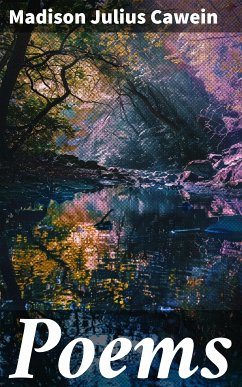Madison Julius Cawein's "Poems" encapsulates the essence of late 19th-century American poetry, characterized by its lush imagery and deep appreciation for nature. Cawein masterfully employs traditional forms while also experimenting with free verse, showcasing a unique blend of Romanticism and emerging Modernist influences. Each poem resonates with themes of beauty, transience, and the profound connection between humanity and the natural world, reflecting both personal introspection and broader societal concerns during a period of rapid change in American culture. Cawein, often regarded as the 'Poet of the Bluegrass,' was deeply influenced by the landscapes of Kentucky, which permeate his work. His upbringing in a region rich in natural beauty fostered his fascination with flora and fauna, as well as a yearning for deeper spiritual understanding. As a contemporaneous figure to greater literary movements, Cawein navigated the complexities of his time, channeling his experiences and surroundings into a vivid poetic landscape that speaks to the human condition. With this collection, readers are invited to immerse themselves in Cawein's exquisite verse, which not only offers a window into the past but also remains remarkably relevant in its exploration of nature's beauty and humanity's place within it. "Poems" is an essential read for enthusiasts of American poetry and those seeking to appreciate the delicate intertwining of art and nature.
Dieser Download kann aus rechtlichen Gründen nur mit Rechnungsadresse in A, B, BG, CY, CZ, D, DK, EW, E, FIN, F, GR, H, IRL, I, LT, L, LR, M, NL, PL, P, R, S, SLO, SK ausgeliefert werden.









